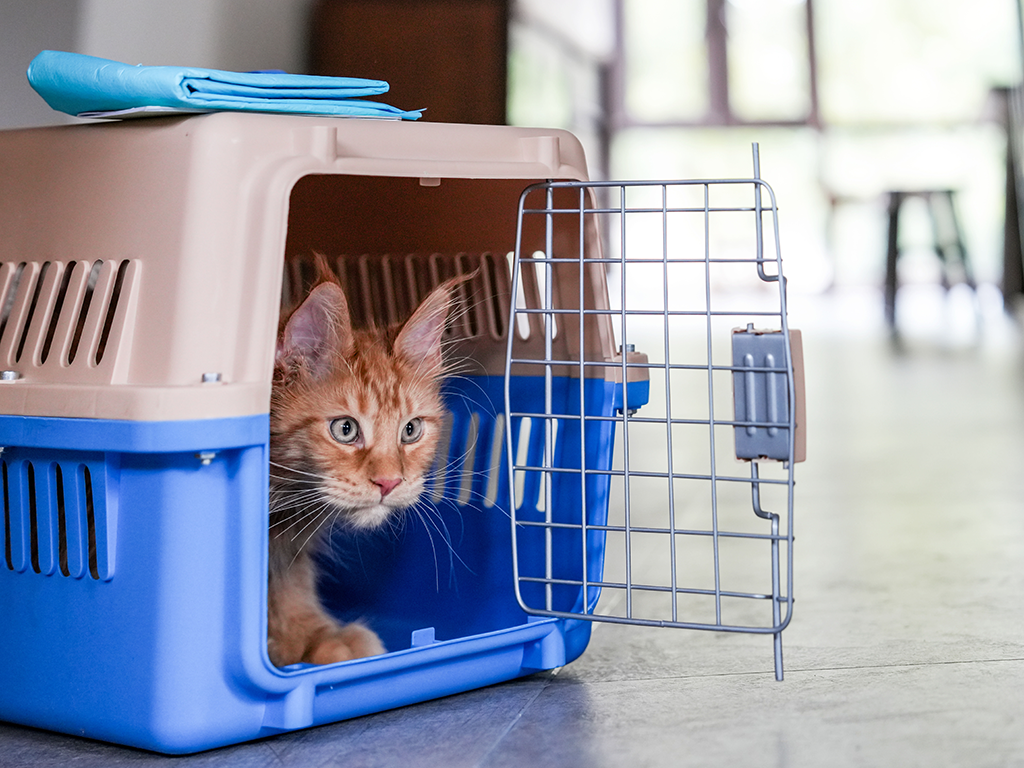Should They Stay Or Should They Go? Things To Know Before Taking Pets On Holiday Trips

Walking into your room to find a curled-up dog or cat resting within your opened suitcase can be heart-wrenching, to say the least. With the winter chill sweeping in, a holiday trip may be on the horizon, leading owners to consider whether they should invite their furry friends to join in on the fun.
Dr. Christine Rutter, a clinical associate professor at the Texas A&M College of Veterinary Medicine and Biomedical Sciences, delves into the debate on whether owners should bring pets along for holiday vacations — and the travel stress that inevitably comes with the journey.
Choices, Choices
The desire to introduce your dog or cat to the extended family may be great, but it’s more important to prioritize what is best for your pet’s comfort and overall well-being.
Pets accompanying their owners on holiday trips should feel safe and not as if they are being uprooted from the normal routines that bring them comfort and security. Each animal’s personality is different, so owners should gauge their pet’s comfort with travel before embarking on a big trip.
“Some pets are extremely anxious in new environments and won’t settle down, won’t eat or eliminate on a leash, or will bark at every noise or new animals in their environment,” Rutter said. “Other pets are very chill about traveling, love a car ride, and are perfectly happy in new environments; this usually happens because owners have done ‘practice trips’ with the pet to let them know that changing environments is OK.”
It’s also important to consider whether the people and other animals at the destination will be comfortable with a new dog or cat in their midst.
“Travel can be stressful for everyone, including your pet,” Rutter said. “Pets can also pick up on the stress of their owners.”
According to Rutter, family members who aren’t expecting to have guest pets, or don’t have pets themselves, may have food items either under a holiday tree or within pets’ “stealing range” that can lead to a trip to the emergency room.
Rules and Regulations
To mediate this stress, Rutter suggests that owners be prepared and aware of all of the stipulations that travel with pets may entail, including knowing requirements for bringing animals across state and country lines.
Rules for how pets can travel internationally vary. Owners who wait until the last minute or skip steps will likely be unable to travel internationally with their pets.
“With international travel, some countries may require sequential blood testing for infectious diseases or a quarantine period, and some may ban the importation of some types of animals, so it’s vital to start preparing for international travel at least six months in advance,” Rutter said.
In addition, the Centers for Disease Control and Prevention has also recently put in place several pet-travel mandates to help prevent the spread of rabies between dogs in the U.S.
Researching rules and regulations in advance is not only important for taking pets to other countries but also for bringing them back home at the end of the trip.
But even within the United States, there are often rules for traveling with pets.
“Domestic travel across state lines requires a special veterinarian-issued health certificate,” Rutter said. “Enforcement of this requirement is usually lax for domestic pets, but an airline or state law enforcement officer can elect to enforce it at any time.”
Exploring Alternative Options
For owners who ultimately choose not to travel with pets, pet sitting and boarding are great options for making sure your furry friend does not feel forgotten.
“For me, personally, I do like to travel with my pets, but the cost and difficulty of the process makes international travel with them unappealing,” Rutter said. “I find a good in-home pet sitter or boarding kennel that I trust and leave my dogs in a familiar environment, which gives them fewer new stresses at a time.”
Surprising the in-laws with a tail-wagging friend at the family holiday has the potential of bringing abounding laughs and joy, as long as the environment and any hosting pets are “guest pet safe” and all of the people involved are happy and comfortable with the extra visitors. If you are unsure of which decision to make, contact your veterinarian to discuss which option best suits the specific emotional and physical needs of your furry companion.
Pet Talk is a service of the College of Veterinary Medicine & Biomedical Sciences, Texas A&M University. Stories can be viewed on the web at vetmed.tamu.edu/news/pet-talk. Suggestions for future topics may be directed to vmbs-editor@tamu.edu.
You May Also Like








